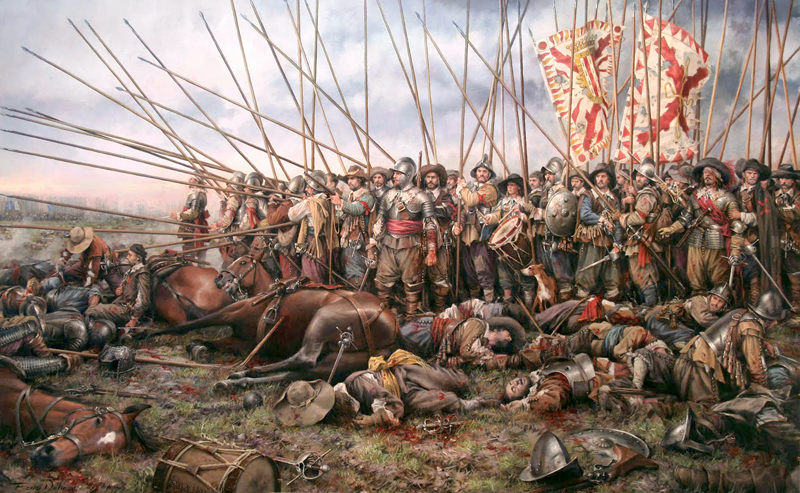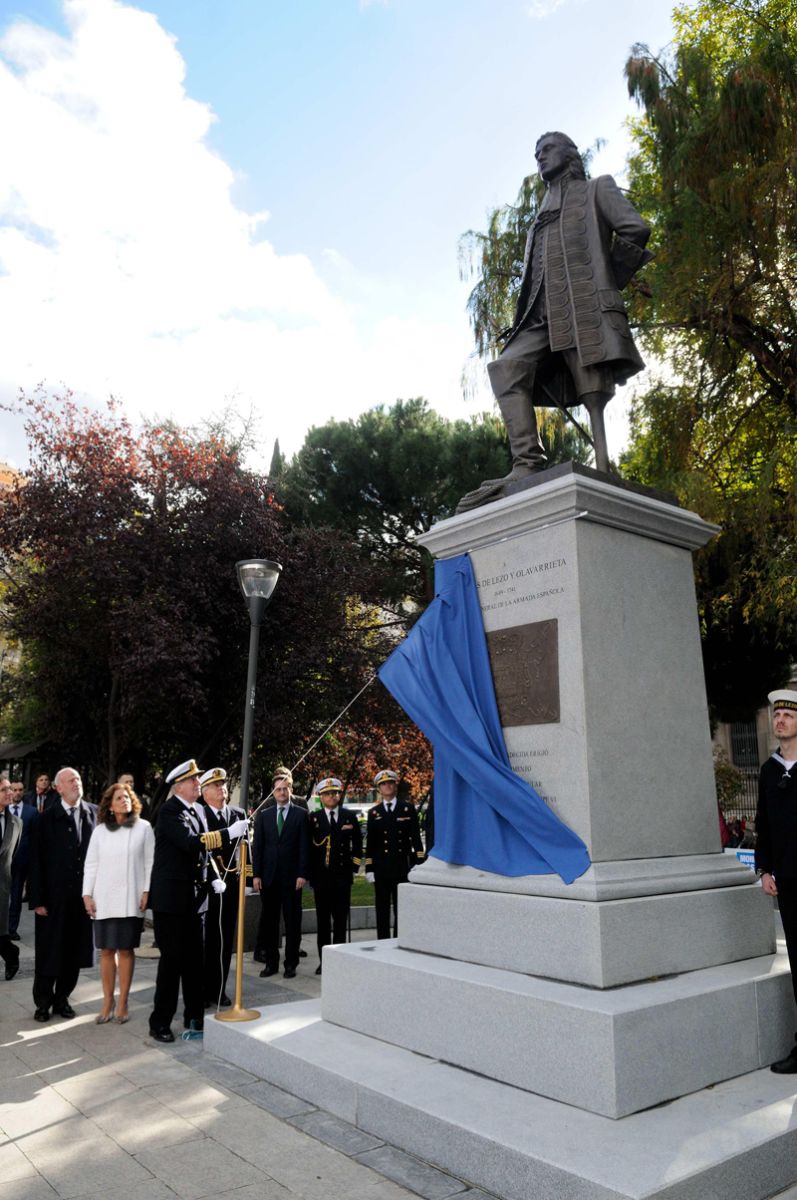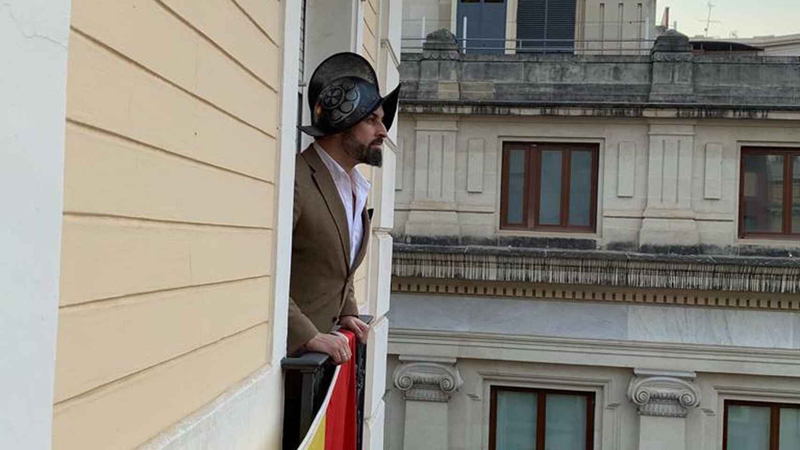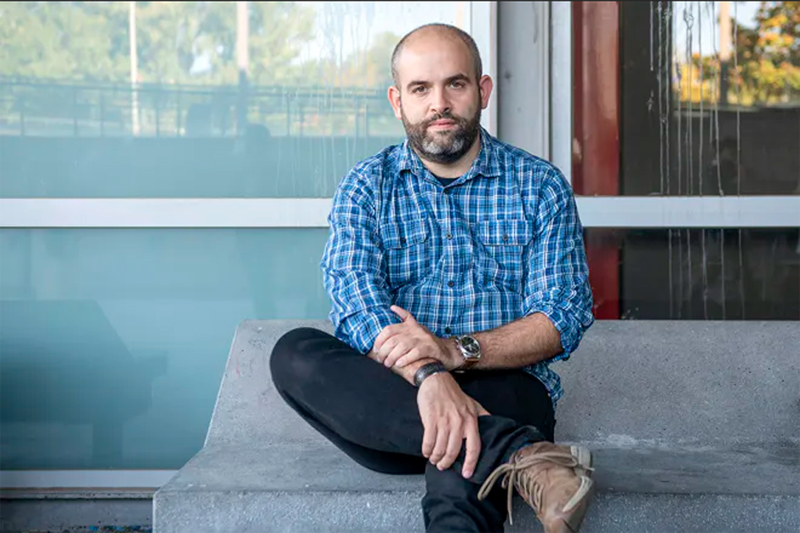
The user @negukobaratza from Twitter uploaded a video. You hear the Spanish hymn. A child appears pulling a rope up the flag of Spain, but when he carries it to the top he still hides the secret he holds. That is why the child has removed with his hand a red, yellow and red cloth. A ham. Now the child brings his hand to the forefront by visera. No, visera no, it's a military farewell. The camera rotates the spectators of the scene: about fifteen people have appeared, one family. Everybody's making a military farewell: children, parents, grandmother. The camera puts the ham back in the center of the screen. And right then, one of the adults shouts out, long live Spain! The other members of the family respond “Biba!”. Applause. The hymn is over, you can start the food.
“Have we noticed that in two years’ time these people are going to order in Spain?” asks the cholero who uploaded the video. The week of the publication of the message has made public a projection on the vote intention made by Sigma Dos for the newspaper El Mundo: The PP and the Vox could jointly welcome the Government of Spain. In two years, things can change a lot in institutional policy, but if we talk about daily policy, which happens in homes, in bars or in networks, there are many reasons to think that something has changed in Spain. Spanish nationalism has acquired a different presence in public debate.
A trend that tries to blur the boundaries between the right and the left is gaining strength from the ideas of the philosopher Gustavo Bueno
This trend has often caused the ridicule between the nationalists and the leftists of the Basque Country by the semi-Frikis semi-fascists it places to go to the square. But upon the arrival of the thrust, the smiles start to become a face full of concerns, fearful of what a president can bring up Moncloa on horseback from neofranchism. The time has come to wonder how this retrograde and essentialist way of understanding Spain is acquiring a certain muscle.
Beast released by a goal
Year 2010, South Africa The Spanish men’s football team is fighting the World Cup final against the Netherlands. In the 116 minute, after a rather confusing play, the ball has reached the feet of Andrés Iniesta within the area, he has stolen it with all strength and despite playing the goalkeeper Stekelenburg, he has not stopped. It's goal. Goal for the World Championship. Never reached in the history of this selection. And that will be used to raise the morale of a country immersed in a crude economic crisis: According to Pablo Guerra, it is possible that an unprecedented patriotic wave since the War of Independence in the early nineteenth century prevailed among the citizens of the Spanish State in the weeks following this victory. They will build a myth about South Africa’s “heroes”. It will be praised that players are from small towns, which are simple people – and in the case of those who do not have that origin, they will be invented – to reinforce the idea that eleven villagers from all corners of the state joined in a common project. That Spain, united, can achieve universal greatness.
The sports press will take on the task of reinforcing this “whim”: “The cover of Marca on June 16, 2010 showed a heart coming out of the chest of a man with the shirt of the selection, with the headline ‘46,745,807 pulsations’: Marca counted as many as Spanish citizens, although there were, and not in small quantities, that rejected the Spanish identity and wanted the failure of La Guerra”. But it is true that, although there were not 46 million, many Spaniards celebrated the victory. And, by the way, with the monarchic flag that was previously identified as no, it assumed some slogans – I am Spanish, what am I going to win? – the song “I am Spanish, Spanish, Spanish” was repeated until the boredom, and while all this happened, the labor reform that the government of José Luis Rodríguez Zapatero approved the day the selection debuted in the tournament.
Epic of the victim
To highlight the low origin of the soccer players seems to give some hint about the imaginary that Spanish neonationalism is producing in recent years, but perhaps what is happening with the Pasaitarian sailor of the eighteenth century, Blas Lezo, shows more clearly the operation: this admiral, who defeated the English with the Spanish Navy in Cartagena de Indias, Colombia city in 2014. The State was financed by crowdfunding and the economic support received by the initiative reveals the desire to make another hero.

“Lezo was not an offensive hero, but a defensive one, and this coincides with a discourse that no longer feeds on the irredentism of the time of D’Annuncio and the expansion of the living space, but on the epic resistance of the fortress surrounded by numerous invasions ranging from migration to cultural Marxism.” As a nation in danger of extinction, Spain is persecuted by Catalan independence, communists, gays and lesbians, the “imposition” of minority languages and many other invaders. According to Battle, the physical aspect of Lezo also helps this symbolic construction. It was a chamomile, a monocular, that could not move an arm because of the wounds suffered in the conflicts in which it participated. “The victimization of this new right and the epic of the younger people find a proper graphic representation in the amputations of the hero.” Add to that, of course, it was Basque. Vasco “good”: who fought for Spain.
The appearance of Spain as a victim has become one of the strategies. This imaginary has sought new heroes, such as Admiral Mutilated Blas Lezo
The truth is that Blas Lezo's fame beyond the circles of historians is a relatively new phenomenon. It is possible that in 2010 an article published by the writer Arturo Perez-Reverte in the journal XLSemanal, which is distributed on Sundays with the newspapers of the Vocento group, put the spotlight on it. Since then, it has become a pop icon in the eagle of networks. The Foroautos portal, one of the most frequented forums in Spanish, launched in 2016 a campaign to troll the British army: In the United Kingdom, the name of a new military ship was made available to the public and the users of Foroella voted en masse in favour of the placement of Blas Lezo until they had to withdraw this option from the vote. Books, T-shirts, USB flash drives... today it appears in all. Recovered from the past, it becomes a timonel to face the identitarian concerns of some.
Cultural war on all fronts
“If the symbols representing the nation remain silent or are interpreted in a limited and closed way, they are no longer useful for mobilizing national sentiment among the masses and become relics filled with dust. Each generation has to redesign the old symbols and create new ones to keep the national fire on,” explains Battle.
In these new boats there is everything: Augusto Ferrer-Dalmau paintings that reproduce events in the history of Spain, several historical novels that have become best-sellers in recent years – often the anti-Muslim reconquest and the Terces of Flanders as a fetish issue – the imaginary that is disseminated with gastronomy in the television program Masterchef, the gamification of imperialism that is happening through video games, etc. And by doing a thorough analysis of each of these cultural manifestations, the traps they hide are revealed.
For example, what is seen in the Ferrer-Dalmau paintings and what will never be seen: he has dedicated the soldiers of the Blue Division who have gone to war against the Soviets, and by the Nazis, a number of paintings, but not the Republican soldiers of the Leclerc Division who participated in the liberation of Paris, for example. In many of the Spanish historical novels, the past is an excuse to talk about the current situation. Muslims expelled from the Iberian Peninsula would be substitutes for current migrants: “The Muslim religion understood as infection or cancer; a bloody venom in the nation’s blood, but deactivated by a strong organism, determined not to let itself be drowned,” explains Battle, in a fragment that has analyzed the works of Isabel San Sebastián.

In the case of video games, something else happens: that players can rewrite the story. Battle commented that a user who has played around 2,000 hours with the kingdom of Castile in the strategy game Europa Universalis IV has explained on a website how he has annexed almost all of America, Africa, Europe, Asia and Oceania with numerous notes and screenshots. “We should ask ourselves what psychopolitical implications this issue is going to have,” says the author. Is it not going to make us think, even in the past, that if it had had more competent leaders, Spain could continue to dominate the middle world? “Does it not feed that, albeit in a superficial and banal way, the boilers of the dissatisfied irredentist and the myth of the conspiracy of the elites, which are usually precursors of fascism?”
Books, series, video games -- in the last decade, Spanish nationalism has found in every media a way to spread its message.
There are also vandal acts that demonstrate who the nation faces: On 12 October 2017 in Oviedo (Asturias) some rainbow banks of the LGTB community were painted red and yellow; in August 2016 in Berriozar (Navarra) suffered the attack of Spanish colors against torture; in February 2021 a cartel against male violence in Trebujena (Andalusia) was covered by painting the Spanish flag with sprays. You can form a long list with similar ones, but the most interesting thing is the background idea. “Nationalism, the seam of heterogeneity, also sews its enemies: all the Iscariotes of the nation are basically the same.”
Right anticapitalism
Like all political trends, Spanish nationalism that is showing new outbreaks has its intellectual authors. Among them is the revival of the ideas of the philosopher Gustavo Bueno (1924-2016): This thinker, who went from Falange's militancy to orbit around the Spanish Communist Party, continued to collaborate with the leftist parties after the Transition. But in the late 1990s he adopted increasingly conservative, nationalist and authoritarian positions, becoming, among other things, a fervent opponent of the Ibarretxe plan, which also spoke of the firing of the former CAV lehendakari.
What explains this political trajectory? According to Battle, Bueno was not a communist stricto sensu, but “in favor of any possible imperial bloc that could curb world capitalism.” And when the Soviet Union dissolved, it discovered the subject of this project in the Spanish empire. That is why things appear in their approaches that even left-wing anti-capitalist writers would sign, for example, against NATO and the European Union, and that at the same time strike the eternal right, from the strategies of laundering imperialism to attempts to redefine the history of the Catholic Church as a civilising agent, against the right to abortion and not forgetting its defence of the death penalty.

Many of Bueno's ideas have jumped into mainstream in recent years, through a book that can be found today relatively easily in any bookstore of Hego Euskal Herria: Imperiophobia and black legend of María Elvira Roca Barea (Imperiophobia and black legend). Since its publication in 2016, it has become an editorial phenomenon, has reached the 30th edition and this success has made anyone who today remembers some dark chapter of Spanish history easily receive some response on the networks, accusing him of feeding “hispanophobia”.
And it's not just that distorted view of history. The followers of Bueno also look for ways to overcome the separation between left and right, according to Battle: “A permanent war against globalism, an attitude against immigration, a more or less savage criticism of feminism and of the new social movements, a labour nostalgia, a conservative morality and a conspiracy obsessed with figures of magnates like George Soros, who presents these types of characters as puppeteers who guide a neoliberal capitalism interested in migration, disreligion and sexual liberties.” With these materials and taking advantage of the social concern caused by the COVID-19 pandemic, as in other countries of Europe, a national-revolutionary tendency is occurring in the Spanish State that crosses the sickle with the phase, loaded with columnists, opinion leaders and influencers. Will they be able to pull part of the sociological realm of the left? It would not be good news for the groups that identify them as opposed to Spain.
Kritika artean abiatu dira Gasteizko Arana klinika zena Nazioarteko Babes Harrera Zentro bilakatzeko obrak. Ez auzokideak, ez errefuxiatuekin lan egiten duten gobernuz kanpoko erakundeak, ez PSEz bestelako alderdi politikoak ez daude ados proiektuarekin: makrozentroen ordez,... [+]
PP, Vox, Junts eta EAJren botoekin Espainiako Kongresuak onartu du otsoa espezie babestuen zerrendatik ateratzea eta, horren ondorioz, berriz ehizatu ahal izango dute Duero ibaitik iparrera.
GALeko biktima talde batek eman du kereilaren nondik norakoen berri Bilbon egindako prentsaurrekoan, Egiari Zor fundazioak eta Giza Eskubideen Euskal Herriko Behatokiak lagunduta. GALen aurkako eta, zehazki, José Barrionuevoren aurkako kereila aurkeztuko dute.
Felipe Gonzálezen garaian Espainiako Barne ministroa zen José Barrionuevoren aurkako kereila aurkeztuko dute, Ipar Euskal Herriko errefuxiatuen aurka abiatu zuen estrategiagatik. ZEN Zona Especial Norte Planaren barruan egindako ekintzen erantzule nagusietako bat... [+]
Gezurra badirudi ere, irudia ez dago Tolosako inauterietan eginda. Munduko herrialderik jendetsuenen artean, laugarrenean da, pasa den astean. Kameraz inguratuta, bi gizoni 80 eta 85 zigorrada eman dizkiote bizkarrean. Haien bekatua: gorputzaz elkarrekin gozatzea. Aceh... [+]